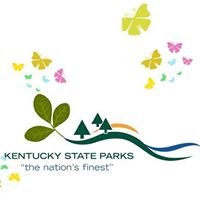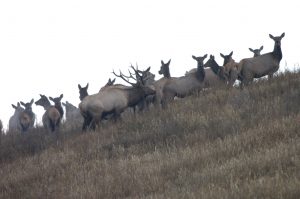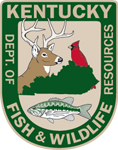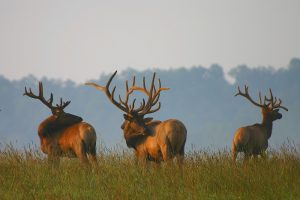
Photo: The Kentucky Center
The Illusionists has become the best-selling magic show in Broadway history – with smash tours in the US and abroad. Adam Trent, one of the original Broadway stars, has teamed up with The Illusionistsproducers to offer a new show with mass appeal not seen since the touring days of David Copperfield.
Standard tickets go on sale to the public Friday, September 22, at 10 a.m. through The Kentucky Center Ticket Service online, 502.584.7777, and at the box office (501 W. Main Street). Group discounts are available in select areas of the theater. Call 566-5152 for details.

Photo: The Kentucky Center
While he may be best known for his decades-long tenure behind The Tonight Show desk, Jay Leno cut his teeth as one of the most incisive comedy voices of the ‘70s and 80s . His new stand-up comedy tour reminds his fans why he became a household name in the first place!
Get tickets starting Friday, September 22, at 10 a.m., through The Kentucky Center Ticket Service online, by phone (584-7777), and at the box office (501 W. Main Street).
As an acclaimed TV late night show host, admired stand-up comedian, best-selling children’s book author, speaker, philanthropist and the host of the Emmy winning series “Jay Leno’s Garage” on CNBC, it’s no wonder that Jay Leno has always been widely characterized as “the hardest working man in show business.”
This Television Hall of Fame inductee exudes his everyman style and personality which has earned him millions of fans worldwide. He has been touted as one of the nicest people in show business and says “Anyone can have a life – careers are hard to come by!”
 Mayor Greg Fischer announced today that a public-private partnership to help people who are visually impaired find points of interest in Louisville will expand, thanks to a $250,000 grant from the James Graham Brown Foundation.
Mayor Greg Fischer announced today that a public-private partnership to help people who are visually impaired find points of interest in Louisville will expand, thanks to a $250,000 grant from the James Graham Brown Foundation.
The Indoor Explorer program, which is operated by the American Printing House for the Blind and created in partnership with the city’s Office for Civic Innovation, places low-power Bluetooth beacons in public buildings that feed information about amenities and points of interest to an app called Nearby Explorer.
People who are visually impaired will use this information to independently find their way through and around the public buildings to find features, such as an airline ticket counter at the airport.
“The American Printing House for the Blind is a nationally recognized leader in innovation, and so is Louisville Metro Government — so this is a natural partnership,” Mayor Fischer said. “This program will expand opportunities for citizens and visitors with vision loss, and is another example of big ideas becoming a reality in Louisville through collaboration, good thinking and hard work.”
The grant will fund the installation of low-power Bluetooth beacons inside additional public buildings, expanding the uses of the Nearby Explorer app for independent travel, employment, civic engagement, tourism, education, dining, recreation, shopping and more. The beacons will also improve indoor navigation — which is limited under current technology — for app users who are blind and visually impaired.
“We are energized by Mayor Fischer’s commitment to making APH’s vision of a world where people who are blind or visually impaired can work, learn and live without barriers a reality here in Louisville,” said APH President Craig Meador. “Working together we have the opportunity to show the world what a truly welcoming community looks like by making Louisville the most accessible city for people who are blind and visually impaired.”
The project aligns with Louisville Metro’s Smart City initiatives, which also include the Waze app for traffic notifications, collaboration with the app IFTTT, and the LouieLab civic innovation space in downtown Louisville.

Credit: KY State Parks
Students from nine more Kentucky schools are taking field trips to a Kentucky State Park this fall thanks to a transportation grant from the Kentucky State Parks Foundation.
The KSPF’s “Inside Out Education” initiative allows schools to seek the grants that enable students to learn about the environment, history or culture at a Kentucky State Park. The recent round of grants brings the total number of students served to 3,919 with 56 grants awarded.
“We’re very proud that more students are having the opportunity to experience the outdoors at a Kentucky State Park with the help of these grants,” Parks Commissioner Donnie Holland said. “These students will get to see history and the environment up close.”
The nine schools and parks they plan to visit are:
Beechgrove Elementary, Kenton County, Big Bone Lick State Historic Site
Madison County High School, Madison County, Carter Caves State Resort Park
Daniel Boone Elementary, Madison County, Waveland State Historic Site
Frayser Elementary, Jefferson County, Old Fort Harrod State Park
Owensboro Middle School, Owensboro, John James Audubon State Park
Muhlenberg County High School, Muhlenberg County, Pennyrile Forest State Resort Park
Muhlenberg County High School Muhlenberg County, Jefferson Davis State Historic Site
Longest Elementary School, Muhlenberg County, John James Audubon State Park
Longest Elementary School, Muhlenberg County, Wickliffe Mounds State Historic Site
The Muhlenberg County school trips are made possible by a grant from the Felix E. Martin Jr. Foundation.
For 2018 spring/summer consideration, applications are due March 1, 2018. For more information, visit: http://www.kentuckystateparksfoundation.org/about/inside-out-education/
For more information about Kentucky State Parks, visit: www.parks.ky.gov

Elk photos from Starfire WMA Oct. 27, 2005. Photos taken by Dave Baker.
The Kentucky Fish and Wildlife Commission modified the elk voucher cooperator and elk restoration permit program and boating regulations at its quarterly meeting Sept. 8.
The Commission recommends all hunting, fishing and boating regulations for approval by the General Assembly and approves all expenditures by the Kentucky Department of Fish and Wildlife Resources. All recommendations must be approved by legislators before they become law.
In wildlife-related business, the Commission proposed modifying the point system used for the Voucher Cooperator Elk Permit and the Elk Restoration Permit programs in an effort to increase landowner participation. Commissioners voted to reduce the number of points needed by participating landowners to receive an elk permit. Commission members also recommended requiring elk guides to report elk wounded by clients.
In other wildlife-related business, commissioners proposed adding a third quota fox hunting field trail at Clay Wildlife Management Area (WMA) in Nicholas County for the last weekend in February. They also recommended changes to testing and permitting requirements for falconry.
In boating-related business, the commission recommended creating a maximum centerline length of 24 feet for monohull boats with seating for at least eight passengers on the following lakes: Guist Creek Lake in Shelby County, Cedar Creek Lake in Lincoln County, Lake Beshear in Caldwell and Christian counties and Lake Malone in Muhlenberg, Todd and Logan counties.
If approved by legislators, the boating regulation proposed at the meeting would take effect March 1, 2018.
The next Kentucky Fish and Wildlife Commission meeting is currently scheduled for 8:30 a.m. (Eastern time), Friday, Dec. 8, 2017. Meetings are held in Frankfort at Kentucky Fish and Wildlife headquarters, 1 Sportsman’s Lane. Commission meetings are open for the public.
 The Kentucky Fish and Wildlife Commission unanimously recommended today that the department increase prices for some resident Kentucky hunting and fishing licenses.
The Kentucky Fish and Wildlife Commission unanimously recommended today that the department increase prices for some resident Kentucky hunting and fishing licenses.
The Commission is the guiding body for the Kentucky Department of Fish and Wildlife Resources. It took the action during its September quarterly meeting. It will be the first resident license price increase in more than a decade, and the first increase of the senior and disabled sportsman’s licenses since their inceptions in 1999.
The Commission recommends all hunting, fishing and boating regulations for approval by the General Assembly and approves all expenditures by Kentucky Fish and Wildlife. All recommendations must be approved by legislators before they become law.
Kentucky Fish and Wildlife relies primarily on license sales and federal excise taxes from the sale of hunting and fishing equipment for its revenue. It does not receive state General Fund money, such as those derived from income taxes or property taxes. The Department manages more than 600,000 acres for public use and stocks nearly 10 million fish each year. Hunting, fishing, boating and wildlife watching generate an estimated $5.9 billion to Kentucky’s economy each year.
The Commission’s recommendation includes resident hunting licenses, fishing licenses, combination hunting/fishing licenses, senior and disabled sportsman’s licenses and joint fishing licenses for spouses.
“Periodic license price increases are necessary to keep pace with inflation and general costs of living,” said Commission Chairman Jimmy Bevins. “We usually project that an increase will last five years, but solid fiscal management historically has allowed us to make them last much longer.”
The Department’s last three resident rate changes happened in 1992, 1999 and 2007. License and permit fees for non-residents increased to help offset rising operational costs in 2014, but resident fees remained unchanged at the time.
Commission members said they took the action to help offset the rising costs of operating the Department’s three summer camps and the Salato Wildlife Education Center. In addition, increased revenue also will be utilized for increased conservation law enforcement efforts across the Commonwealth.
The three summer camps annually graduate more than 5,000 youth. The Salato Wildlife Education Center, located on the main Kentucky Fish and Wildlife campus, hosts more than 50,000 visitors each year.
“These programs are one main reason why Kentucky continues to see robust participation in hunting and fishing despite decreases seen in surrounding states,” said Kentucky Fish and Wildlife Commissioner Gregory K. Johnson. “Our children are our future sportsmen and sportswomen, and our future leaders.
“These license increases help the Department maintain a commitment and solid investment in outdoor education of our youth,” said Johnson. “Revenue also will support a more complete law enforcement presence across the state, and improved law enforcement recruitment and retention.”
“We operate almost entirely from user fees derived from hunting and fishing license sales, and federal excise taxes generated by the sale of hunting, fishing and shooting equipment and ammunition,” said Bevins. “Other Kentucky state agencies are largely funded by General Fund tax dollars.”
“The new rates for residents would not happen until the 2018 license year,” said Bevins, “so that means we will have made our last increase last for 11 years – more than twice the original projection.”
The Commission voted to increase a resident hunting license from its current $20 to $27, a resident fishing license from $20 to $23, a combination resident hunting/fishing license from $30 to $42 and the resident joint fishing license for spouses from $36 to $42.
Currently, the senior and disabled sportsman’s licenses provide $165 worth of licenses and permits for $5. A resident sportsman’s license cost $95.
Under the Commission action, the senior and disabled sportsman’s licenses would increase to $18. In 2007, Kentucky sold 90,184 of these licenses. Kentucky’s aging society caused that number to reach 120,426 by 2016, with that number projected to continue increasing.
“We surveyed senior and disabled license holders across Kentucky and had a strong response,” said Bevins. “Nearly three quarters said they would continue to purchase a license even if it was as much as $20.
“I believe the support from our seniors is a direct reflection of their own memories and experiences,” he said. “They remember when all deer hunting in Kentucky was prohibited prior to 1956 because there were very few deer, and when there were no wild turkey, elk or bears, or fish hatcheries to raise and stock fish.
“Today our fish and wildlife populations are healthy and abundant, and our management program is a national model. Our seniors know better than most that our conservation camps and school programs are helping to leave a better natural Kentucky for their children and grandchildren,” Bevins said.

Photo: Kentucky Department Fish and Wildlife
Jenny Wiley State Resort Park will open the elk-viewing season with its Elk Night buffet Sept. 16 from 4-9 p.m.
The menu will include elk roast carved on the line, hunter’s elk chili, elk meatloaf, fried chicken, catfish with hush puppies, lyonnaise potatoes, shoe peg corn and other vegetables and desserts.
The buffet is held on the first day of elk viewing tours at Jenny Wiley that run through the fall and winter. Adults are $18.95 and children ages 6-12 are $8.95. Ages 5 and under are free. Drink not included.
Elk were re-introduced to Kentucky in 1997 as a restoration project by the Kentucky Department of Fish and Wildlife Resources. The department estimates there are more than 10,000 elk in Kentucky. Some of the best areas for elk habitat are on reclaimed surface mines in Eastern Kentucky.
Jenny Wiley State Resort Park is sponsoring elk tours at a cost of $30 per person or $15 per child, 12 and under. This fee includes transportation by van to the viewing sites and a continental breakfast. The elk-viewing tours will run through Dec. 2. The tours will resume in January.
The park also offers overnight tour packages that include lodging, dinner, and an elk tour with continental breakfast for $160 per couple. Guests should register for the trips. Special group and business tours are available.
Call 606-889-1790 for information and reservations. For a list of dates, visit: http://parks.ky.gov/calendar/details/appalachian-elk-viewing-tour/21209/
Jenny Wiley State Resort Park is located on 1,100-acre Dewey Lake. The park has a lodge and conference center as well as fishing, boating, marina, swimming, and other recreational opportunities. The park also has cottages, a campground and dining.
 Weather
Weather Traffic
Traffic @LouisvilleDispatch
@LouisvilleDispatch @LouisvilleDisp
@LouisvilleDisp Subscribe
Subscribe